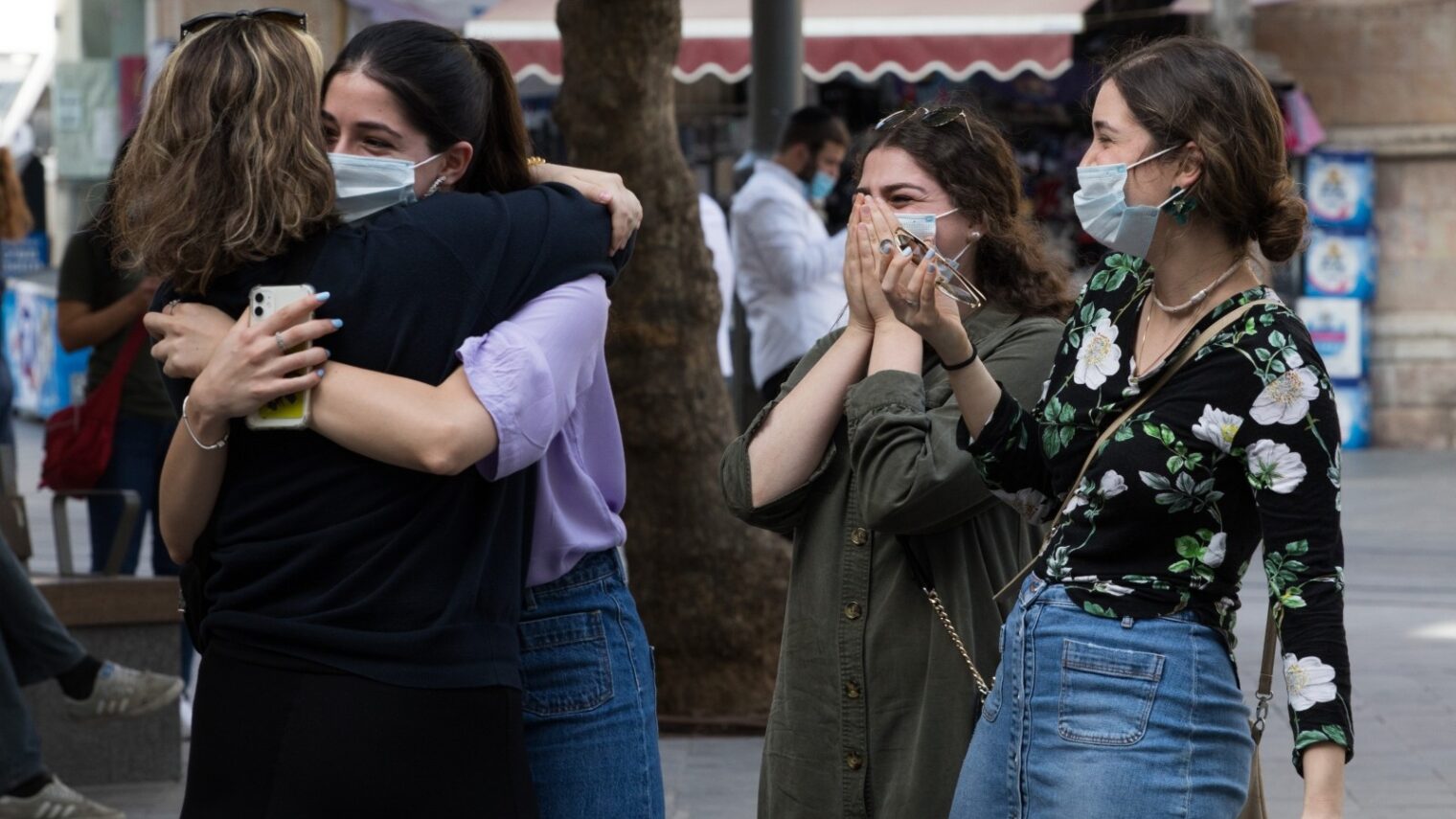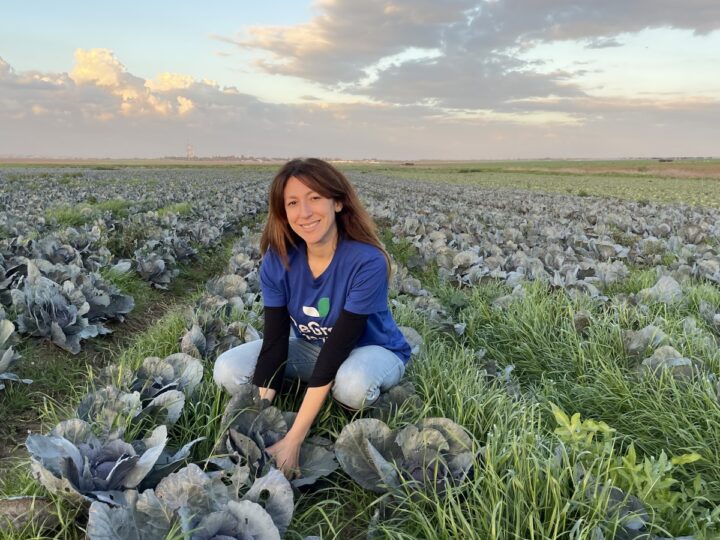This was the year we learned a whole new vocabulary – lockdown, PPE, furlough, Covid-19. It was the year that the facemask went from being inconceivable to being ubiquitous.
It was also the year where businesses and industries crashed, unemployment rose dramatically, events were canceled, airports ground to a halt, and loneliness and separation became a way of life for people everywhere. It was a year dominated by recession, sickness and death. It was the year of corona.
There is absolutely no denying it — 2020 was a horrible year.
And if all the heavy global disruptions of the pandemic weren’t enough, it was also possibly the worst year yet in terms of climate change as massive wildfires swept Australia and the United States, once-in-a-century storms and extreme weather events became increasingly common, and climatologists discussed the possibility of force 6 hurricanes.
But it wasn’t all bad. Truly.
2020 shouldn’t be consigned to the scrap heap of history, because despite it all, many amazing things did happen.
Here are a few of them. Read them and take heart. Humanity is often at its best during adversity.
- Suddenly things are getting normal in the Middle East
In the space of just a few months, normalization deals were announced between Israel and the United Arab Emirates, Bahrain, Sudan, and then Morocco and Bhutan. And still more are expected.
Flocks of Israelis celebrated by flying directly to Dubai for the first time in their lives – 50,000 reportedly this month alone – and a flurry of cooperation agreements have followed in health, education, technology, disaster response and even shoes, and everything in between.
Initially it seemed the agreements would merely formalize what had been going on in an unofficial capacity for years, but it soon became apparent something much bigger was happening here. There’s genuine excitement and optimism on all sides.
No one can keep up with the huge number of new deals and partnerships being created. Life in the conflict-ridden Middle East is suddenly looking entirely different and the consequences of these agreements are likely to be felt not just here, but all over the world, for many years to come.
- Corona sent Israel into innovation overdrive
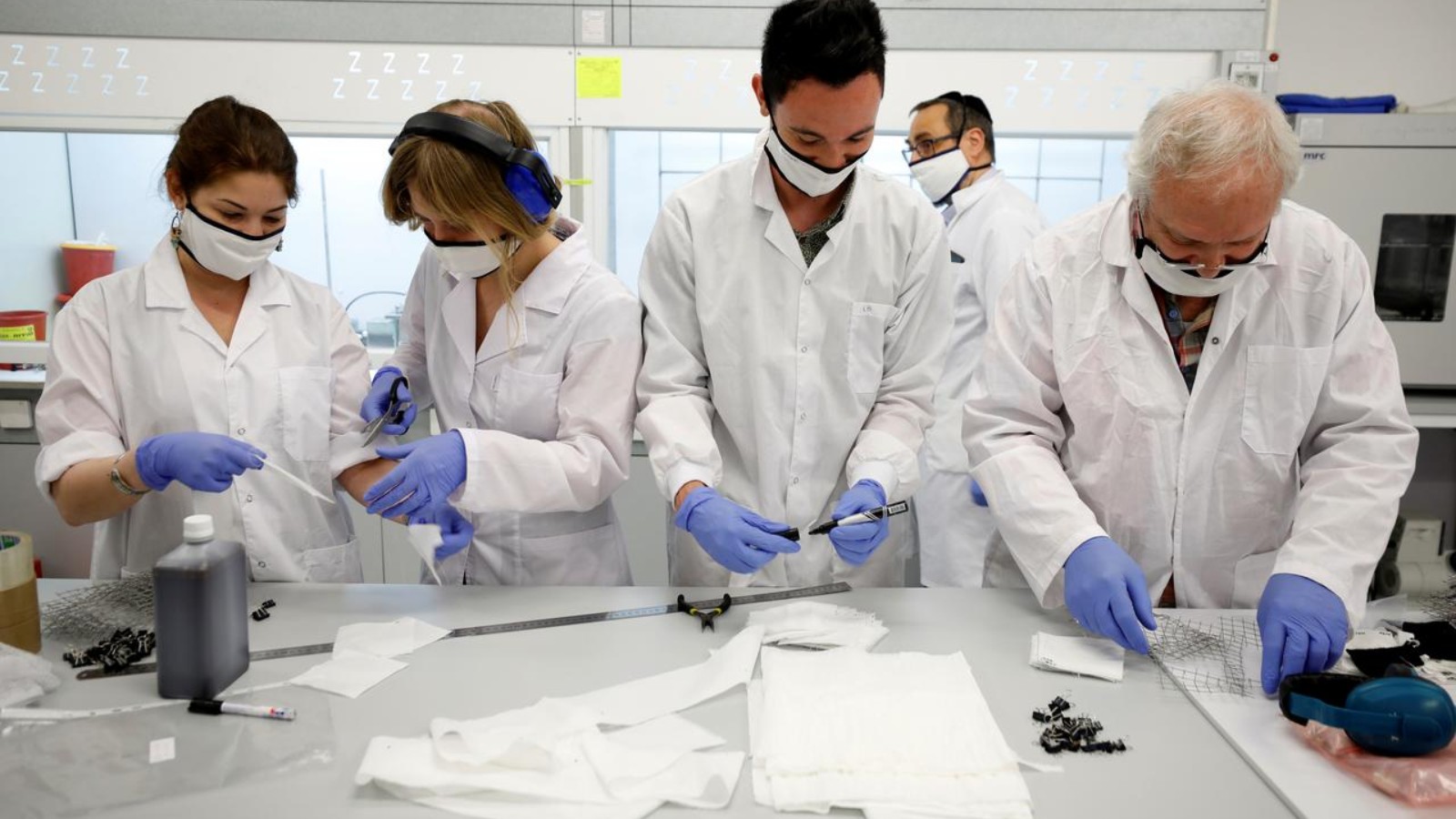
Present the Startup Nation with a massive and seemingly impossible challenge, and Israel’s entrepreneurs put their heads down and get to work.
As the corona crisis ramped up, hundreds of Israeli companies pivoted sharply, turning technologies designed for completely different challenges into answers for some of the biggest issues facing us all in Covid times.
Facemasks, ventilators, Covid tests, online communication and learning, air purifiers, online health – Israeli companies developed wave after wave of imaginative and outside-the-box technologies to help the world combat its biggest crisis in a century.
- Israel sends corona aid around the world (despite problems at home)
There aren’t many places in the world that can boast of having got through Covid-19 well, and Israel certainly can’t. We went from being the biggest success story of the corona period – reducing corona numbers to just 20 a day – to being one of the worst, with a peak in September of 9,000 new cases in a day.
We’ve already been through a second lockdown, and will enter a third one next week. Despite this, Israel managed to send aid to a host of countries suffering the impact of corona. We sent doctors to Italy, PPE to the US, Puerto Rico, Haiti, Australia, and to Syrian refugees. We sent hygiene kits to Guatemala, ran education and awareness programs in Vanuatu, and offered stress relief to US health workers.
Israeli psychologists began offering free counseling online to American medical personnel and an Israeli aid group offered free stress-management webinars to Chinese first responders.
- Aid isn’t just about corona
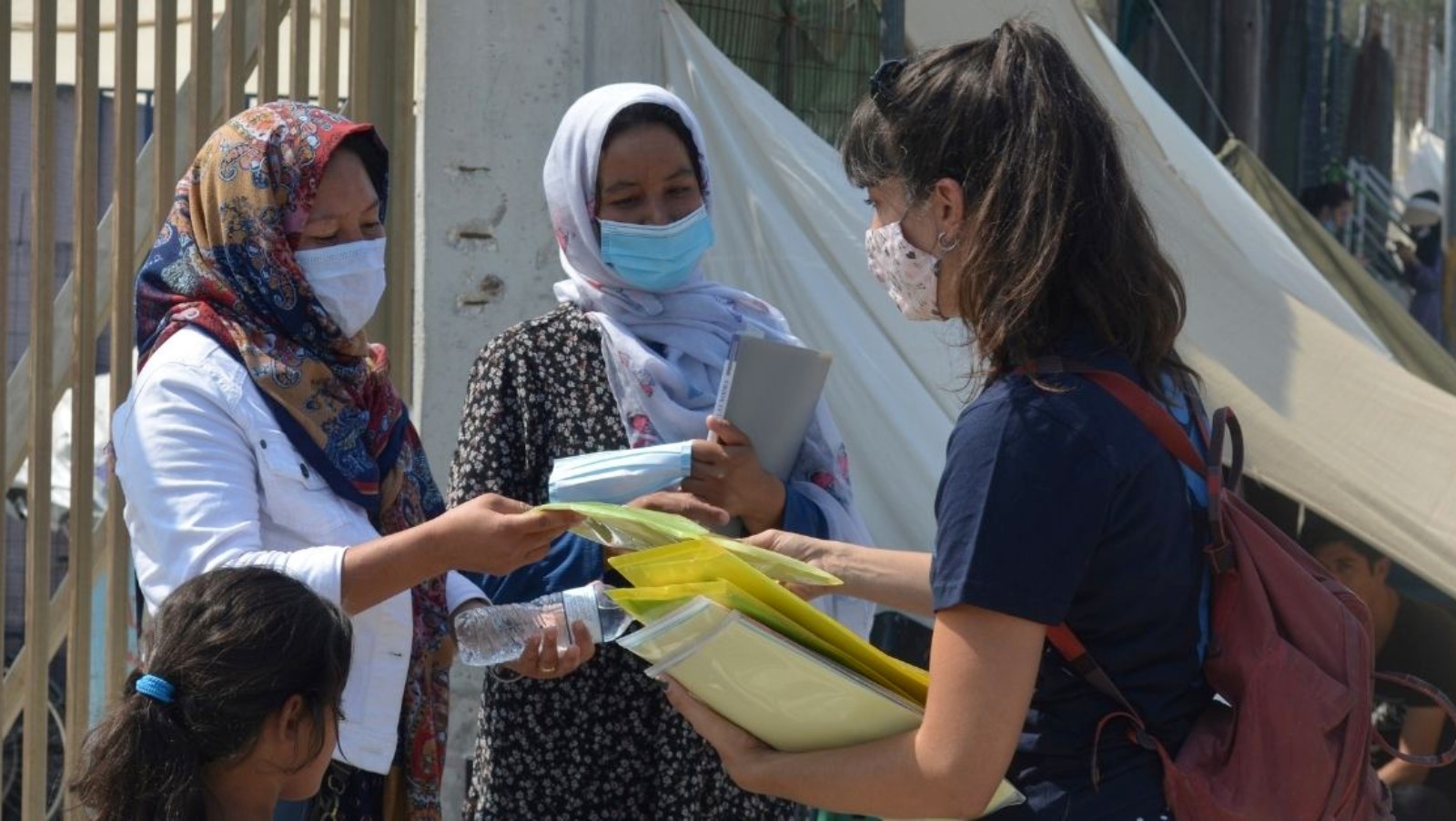
Just because corona is dominating the headlines doesn’t mean that other natural and manmade disasters didn’t happen in 2020, and a pandemic sure isn’t going to stop Israelis from offering aid wherever it’s needed around the world. So, closed skies or not, Israeli aid organizations were still out in force this year – offering help to Guatemala after Storm Eta, emergency supplies to malaria-stricken Chad, and water relief to Vanuatu.
Israel also sent Israeli firefighters to California during the devastating fires, raised money to help the Lebanese after the Beirut explosion, sent locust experts to Ethiopia, and developed energy boxes for off-grid schools.
- In a crisis, everyone wants to help
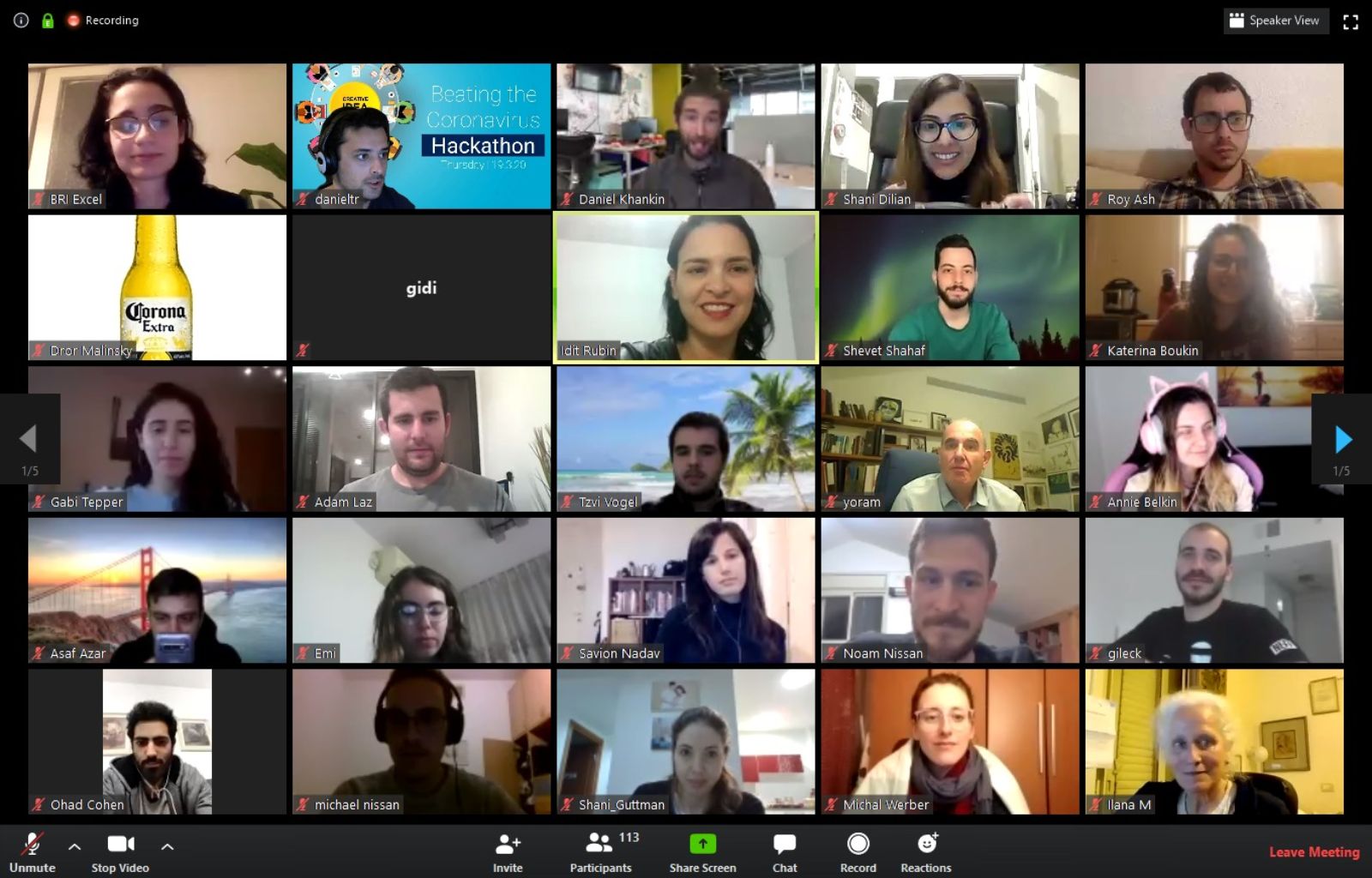
One thing that makes Israel so resilient in times of adversity is that society closes in and becomes like a family. 2020 was no different. This might not have been the conflict Israelis were used to, but Covid-19 is just as significant a battle and it is bringing out the best in many.
We didn’t just have a weekly clap for healthcare providers, like other nations. There were people volunteering on farms to harvest crops, bringing hot meals to doctors, testing blood samples, helping out at food banks, organizations set up to check on neighbors and the elderly, WhatsApp and Facebook pages dedicated to offering help.
And in true Israeli startup spirit, there was even a hackathon where software developers and computer programmers collaborated to come up with ideas to help vulnerable communities and enable distance learning.
- The Israeli tech industry continued to break records
Israel’s tech industry seems to be like Teflon. It doesn’t matter what is going on in the country, or around the world; the tech industry remains strong and indefatigable. So here we are in the worst worldwide recession since the 1930s, and Israel’s tech industry had its best year yet.
A year-end report from non-profit Start-Up Nation Central shows that in 2020 Israel broke capital-raising records. In fact, this is likely to be the first year where Israeli companies raise more than $10 billion in investment. Moreover, Israel saw a sharp rise in high-tech investments compared with Europe, Asia and America, partly because of its technological response to Covid.
There were other indicators of success, including a growing number of unicorns. TIME picked six Israeli inventions as the best of 2020, and nine Israeli companies were ranked in the top 100 as best tech challengers.
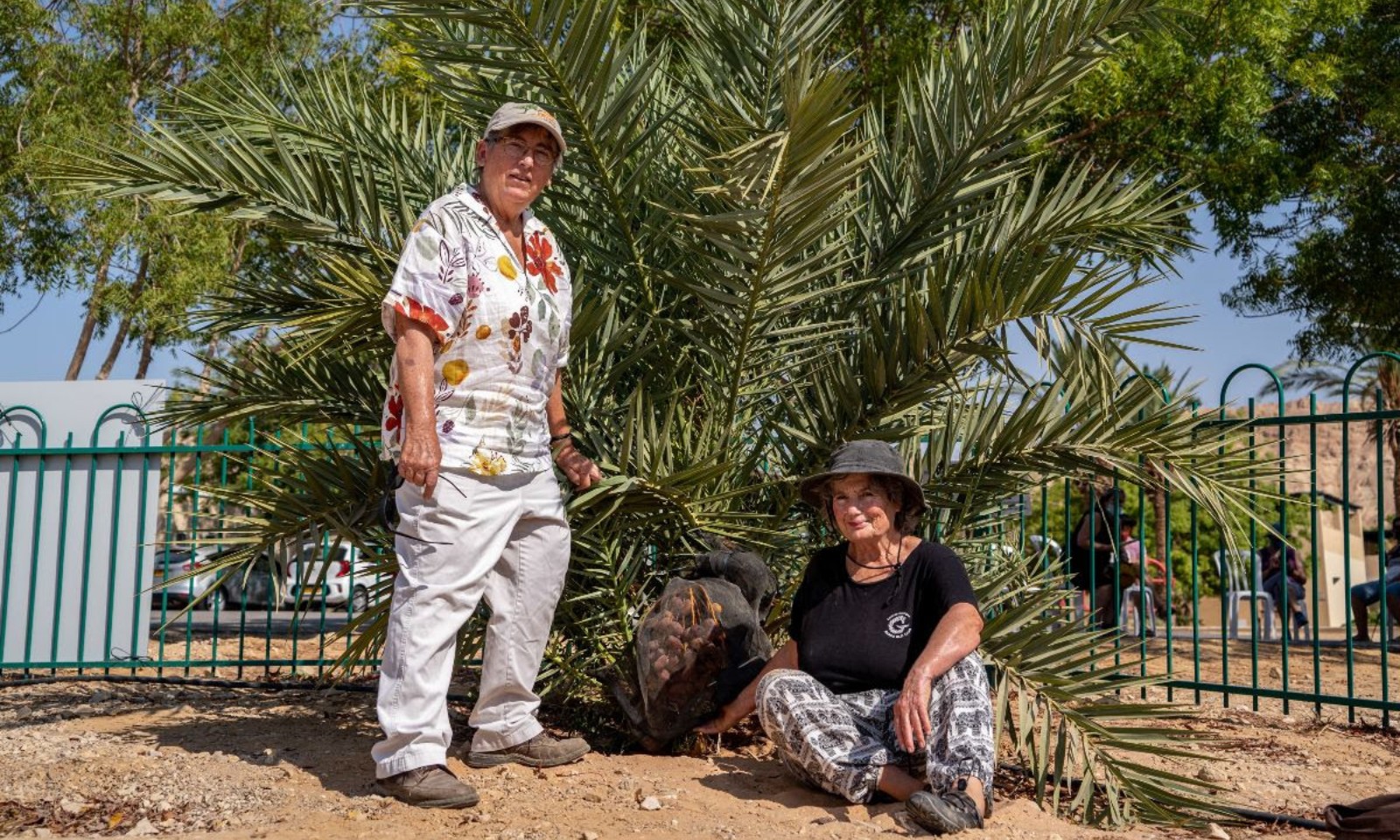
How cool is this? Agronomists at the Arava Institute were given ancient date palm seeds found on archeological digs in Masada and Qumran, and managed to grow them into mature trees that produced fresh dates. These ancient dates are a type that haven’t been tasted since the times of Jesus and the Maccabees.
Aside from the phenomenal agricultural success of growing a date palm from an old, desiccated seed, there is much to study here. Perhaps these dates will have medicinal or nutritional value that was bred out of modern dates and can be added back in? And what a metaphor of hope for the planet, too. These trees were brought back from the dead.
What happens when an endangered vulture chick gets stranded on a cliff ledge and is starving to death? Well, in Israel it means that soldiers from the Israel Defense Force send in a drone.
There are now fewer than 60 pairs of Griffon vultures left in Israel, so when a chick was left abandoned after its mother was electrocuted on power lines, the Israeli Nature and Parks Authority and the Israel Ornithological Center of the Society for the Protection of Nature in Israel joined forces with IDF experts to deliver food directly to the chick.
Carrion was delivered to the chick every two or three days using a drone made by Israeli company Xtend, until the vulture was old enough to hunt by itself. It was a wonderful celebration of how so many different organizations can cooperate, and fascinating to see how new technologies can be adapted in unexpected ways to protect wildlife.
- The end of the world is nigh
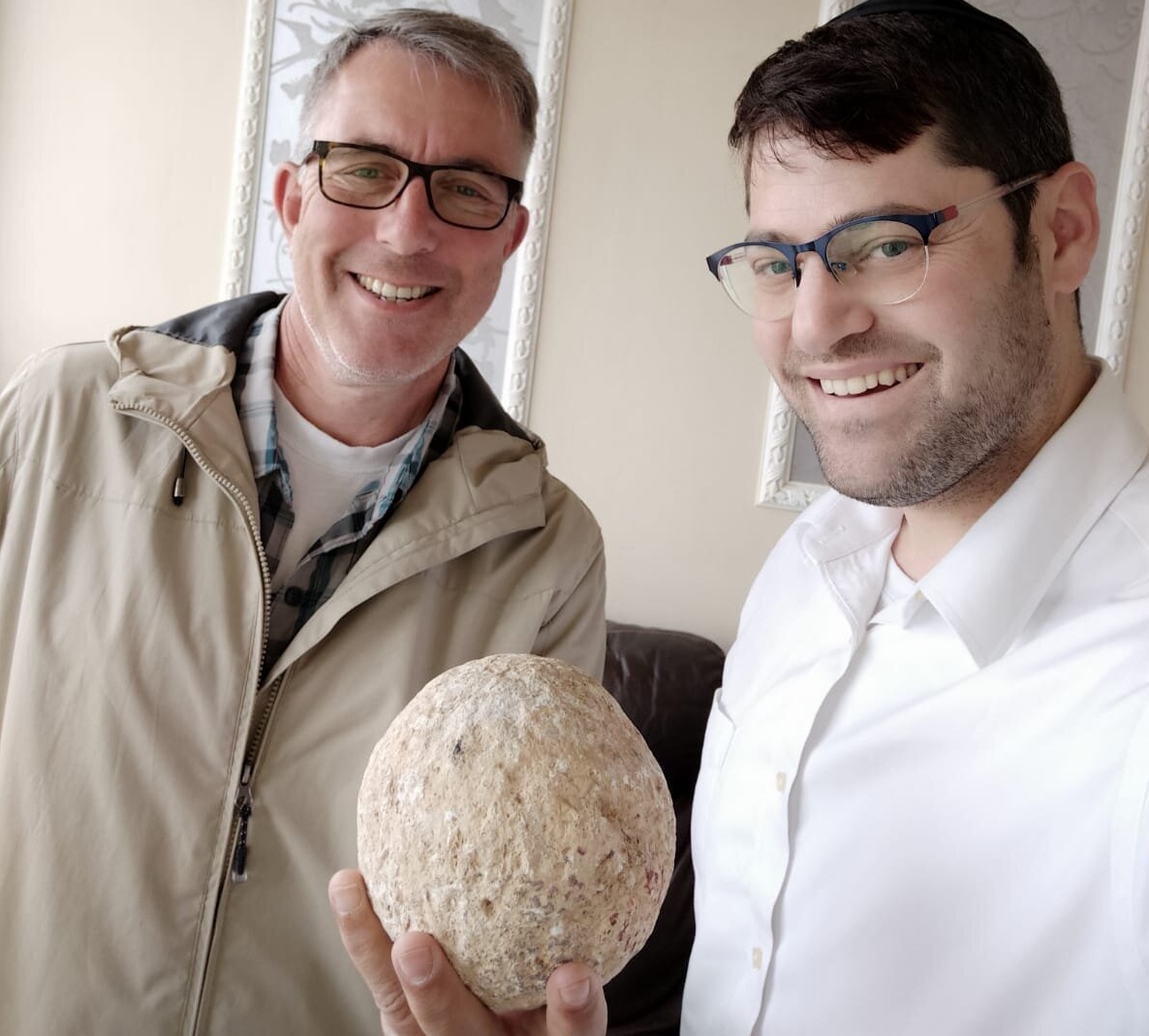
Early on in the corona crisis, the Israel Antiquities Authority sent us a story that gave us all a much-needed giggle. Fearing the end of the world, an anonymous Israeli returned a 2,000-year-old ballista stone stolen 15 years earlier from a Jerusalem archeological site, to the IAA. The thief had pilfered the stone – used most likely by the Roman Legion in the destruction of Jerusalem – as a teenager but it had weighed heavily on his heart, and now, feeling apocalyptic in the face of corona, he wanted to clear his conscience.
Later in the year came another story to amuse us in this dark time. With people stuck at home, wild boars and jackals have been venturing deeper into our cities. One of those boars in Haifa took a liking to a boy’s school bag, and ate it. “A boar ate my homework” is probably the best excuse any kid can hope to give. Especially as he captured the moment on camera.
- Alive and well despite a spike through the head
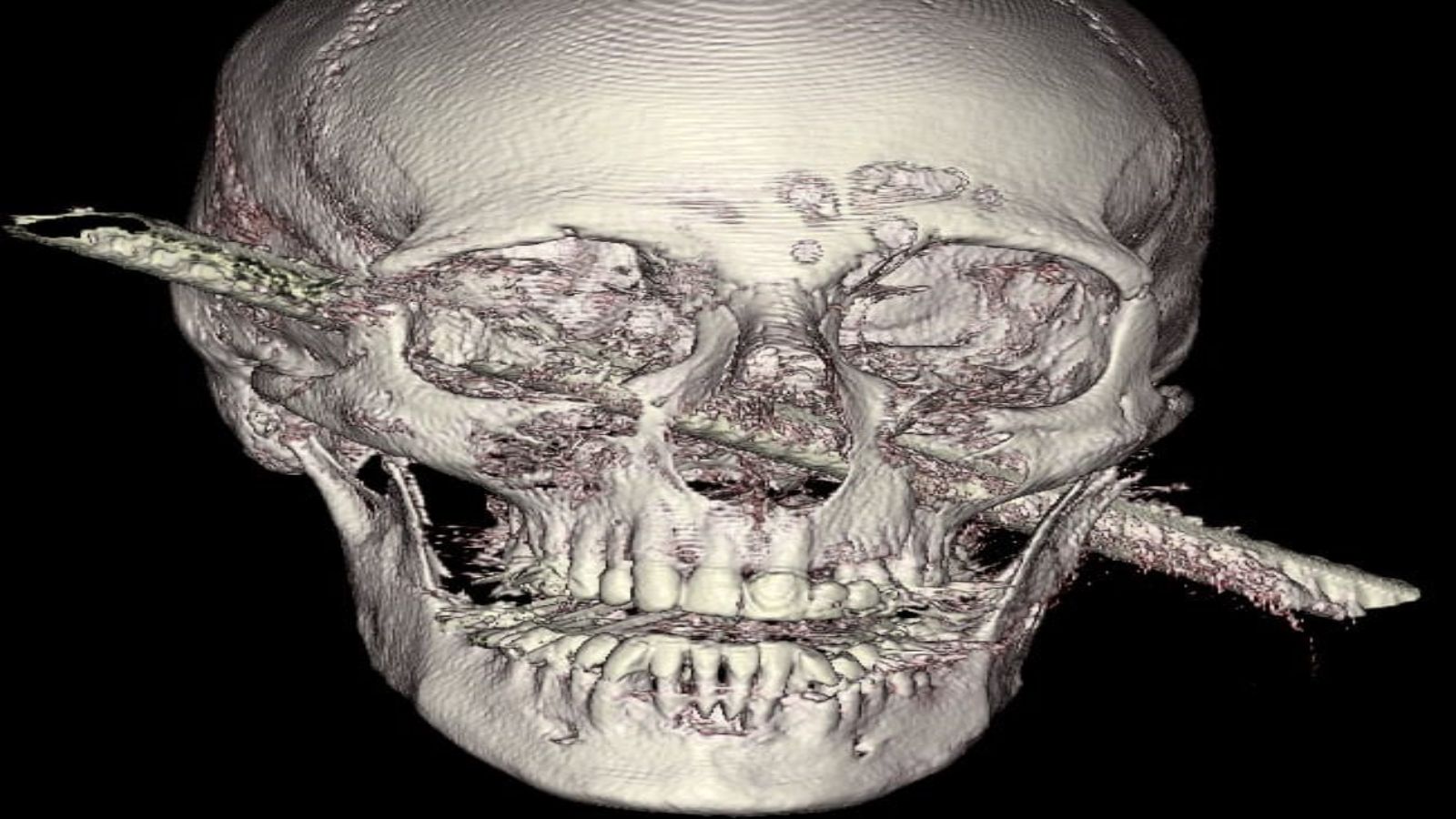
The picture says it all. Forty-six-year-old Kamel Abdel Rahman from Abu Ghosh fell from the second floor of a construction site onto an iron rod that went straight through his head – from side to side. Doctors at Hadassah Ein Kerem Medical Center operated immediately on Rahman and were able to remove the rod.
They operated again a few days later. Two weeks later, Rahman woke up in intensive care and was fine. “I have no words to thank the doctors at Hadassah, Rahman said. “They saved my life, my speech and my walking. Those who saw me didn’t believe that I’d live, and those who thought I’d live didn’t believe I’d be standing up on my feet,” he says. “I’ll be thanking them my whole life.”
That wasn’t the only unbelievable surgery that took place in Israel this year. In October, a team of 30 doctors and nurses at Tel Aviv’s Sourasky Medical Center performed a rare procedure on a baby as it was being delivered by Caesarean section.
“To be a partner in a procedure where you’re holding the head of the fetus and treating him while he is mostly still in his mother’s womb, and then delivering this new life into the world, is a supreme, uplifting, special and touching feeling that will stay with me and the team for a long time,′′ said Dr. Ariel Many, director of labor and delivery at the center’s Lis Maternity and Women’s Hospital.
Then there was the spinal surgery carried out while a patient was fully awake, and a surgery where a bullet was removed from a boy’s brain. Amazing.
In July, a story reached the Israeli press that moved and touched all who heard it. Michael Ben Zikri, a father of three from Ashdod, drowned in a sinkhole in Nahal Shikma, after rescuing four members of a Bedouin family from Hura – a woman and three children – who got into trouble there.
Ben Zikri’s heroism was lauded widely. Bedouin and Jewish mourners came to his funeral in Ashkelon. Many of the Bedouin mourners came from Hura with handwritten notes in Hebrew thanking him for his bravery, and offering condolences to Ben Zikri’s widow – who had married him just a few weeks earlier. Word of the selfless act reached other Arab nations, and messages of support came pouring in from Muslims in countries like Iraq, Morocco, Egypt, Oman and Syria.

It’s long been a source of pride that the Israel Defense Force encourages people with intellectual and physical disabilities to enlist and take active roles in army life through its unit, Special in Uniform. This year, inspired by Israel’s success, the US set up its own version, Corps of Honor.
The man behind the initiative is US veteran Chris Neeley, a major in the US Army National Guard and the father of a five-year-old with Down syndrome. Neeley visited Israel and was blown away by the success of the IDF’s special unit. Now, with Israel’s help, he plans to set up the first Corps of Honor at the South Carolina Army National Guard in 2021. Another version of the Israeli program was started in Virginia for first responders.
- First it was wine, now it’s whisky

Israel’s reputation for excellent world-class wines has been growing significantly over the last two decades, and this year it continued to impress. In September, 65 Israeli wines won medals in the Decanter world wine awards – 6 gold, 31 silver and 28 bronze. Shiloh Winery won the most awards of all the wineries.
Israeli wine may be good, but there’s a new arrival also making waves on the international scene – Israeli whisky. In October, it was announced that two single malt whiskies made by Milk & Honey Distillery in Tel Aviv received top scores from Whisky Advocate, one of the leading whisky magazines in the world. We were so impressed, we went along to meet them – watch for our film, which is due out soon.
- Your toilet is about to diagnose illness

Yes – that’s right. Instead of having to take a urine or fecal sample to your local clinic to be tested, the testing will happen right inside your own toilet bowl. Talk about making life simpler for us all. We’ll be able to know if we are getting ill even before we have symptoms. There are two companies already working in this field.
Olive Diagnostics is creating an IoT device mounted in the toilet that can pick up biomarkers from your urine, and forward the results to an app on your phone. Beta testing at geriatric facilities in Israel and Europe should begin at the end of this year for three conditions plaguing older people – UTIs, kidney stones and bladder infections. It won’t prevent you from getting the infection, but it will allow you to get treatment before you have symptoms.
OutSense has also developed an IoT sensor that clips onto the toilet to scan your feces for even tiny traces of blood – a possible sign of disease that can be missed by the lab-based fecal immunological test. The technology is aimed at colorectal cancer, which kills 700,000 people a year, but which can be cured if detected early enough. It will certainly be a lot more appealing than a colonoscopy. A pilot is planned in Japan.
- The honeybees haven’t been forgotten

We may be in the middle of the worst health crisis in a century, but that doesn’t mean the honeybees have been forgotten. Without them, we will be in serious trouble. A third of our crops are dependent on bee pollination. And yet – as we all know – bee populations are in trouble.
Israeli startup, Beewise, decided to take a decidedly high-tech approach, using computer vision, artificial intelligence and precision robotics. The company developed the world’s first autonomous beehive, a device that can house up to 40 bee colonies (around 2 million bees), and take care of their health and upkeep with a simple app. “It’s what’s called a disruptive innovation,” says Beewise CEO Saar Safra. “We’re coming to replace all the beehives in the world.”
- Did scientists really just discover the cure for aging?

In November, a pioneering study was published by scientists at Tel Aviv University and Shamir Medical Center, showing that hyperbaric oxygen treatments can stop the age-related shrinkage of telomeres (protective caps on chromosomes) and even – drumroll – reverse the aging process in healthy aging adults. Turning back time is the holy grail of medicine, and this is a phenomenal claim.
It’s not the only claim, either – other achievements attributed to hyperbaric oxygen therapy include improvement of brain functions damaged by age, stroke or brain injury. At ISRAEL21c, we decided to take a deeper look into the subject and the many treatments now being developed alongside, so watch out for our feature, coming soon.
- Thank heavens for Israeli TV
In a year where we inevitably spent a great deal of time curled up in our PJs on the sofa, Israel’s tight-paced and intriguing TV shows did a great deal to keep people entertained during those long hours at home. First up for binge-watching were the old shows that you might have missed, shows like Fauda, The Baker and the Beauty and Hostages – the original Israeli version later turned into Homeland.
And next there were the new shows – Tehran, Our Boys, Fauda Season 3, Autonomies, Valley of Tears, Losing Alice and Shtisel Season 3. Israeli TV and film is widely praised all over the world, and when you sit down to watch these unforgettable shows, you understand why.
18. X-rays, synthetic corneas and diabetes – it isn’t just about corona

While Covid-19 certainly dominated our thoughts and the headlines, there were plenty of other extraordinary developments that could have a huge impact on our health in the years to come.
Nanox is hoping to revolutionize our 125-year-old X-ray technology, for starters. The startup has gone full Star Trek and is developing a digital X-ray that can scan your whole body for signs of disease — CT, mammogram, fluoroscopy and angiography – all at once.
This year, the first human trials of a synthetic cornea developed by CorNeat Vision began in Israel. The implant is expected to fully rehabilitate the vision of corneally blind patients.
Then there’s Jerusalem company Concenter BioPharma, which is developing a pill that could treat diabetes, making insulin injections a thing of the past.
Researchers have also developed a prototype of a wearable device that can predict epileptic seizures an hour in advance.
We could go on – self-healing skin, bandages that dissolve in water. Israeli scientists don’t stop, even in a pandemic.
19. Flying cars, of course

We’ve been waiting for this for such a long time! So long, in fact, that it began to seem as if it would never arrive. But now it’s nearly here – and an Israeli company is leading the pack. We’re talking flying cars , of course, or VTOLs (vertical takeoff and landing), as the geeks would have it.
CityHawk by Urban Aeronautics is designed to be the “Uber of the air.” It will be about the size of a large SUV, can carry six people, and will be able to land on a sidewalk. In September, the Yavneh-based company signed an agreement with Hatzolah Air to develop a CityHawk aircraft for emergency medical service applications.
When is the flying car likely to reach the market? Urban Aeronautics has been working on this for a decade and a half so far, but it’s not likely to see the light of day before around 2028 to 2030. Still it’s nice to have something to look forward to, isn’t it?
20. Supermarkets with farms in the parking lot
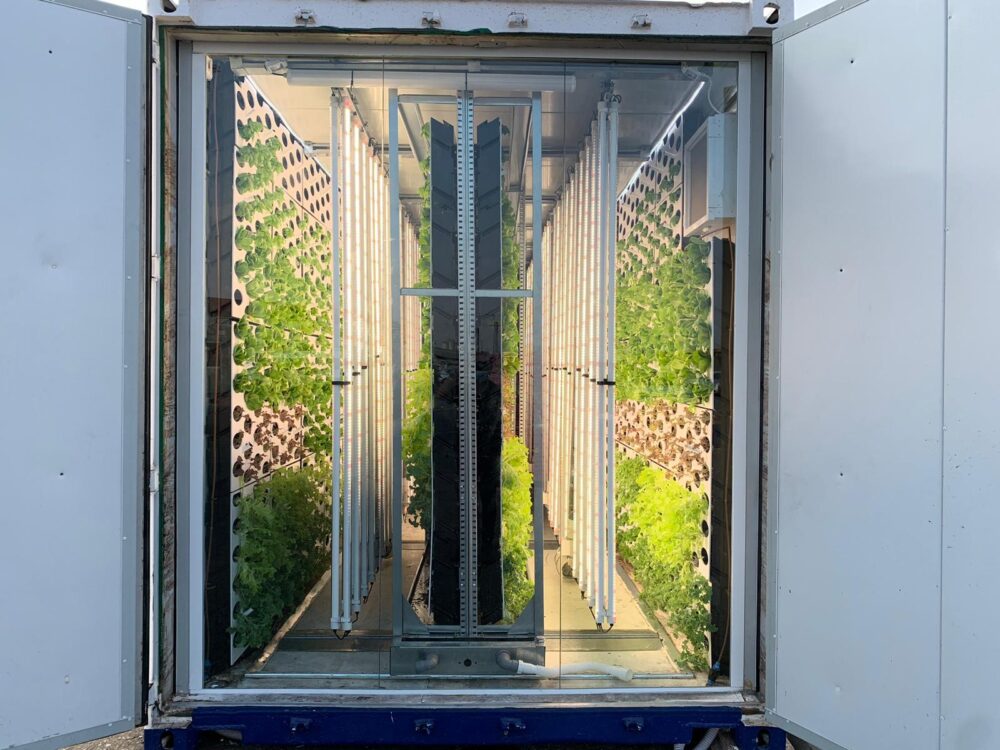
To combat global warming, we have to urgently reduce the distance our fruits, vegetables and other foodstuffs travel, a need that Covid-19 made clearer than ever, so how neat is this – four Israeli supermarkets are now growing their own vegetables in the parking lot.
The indoor farms at the Rami Levy supermarkets are courtesy of Israeli company Vertical Field, which has developed space-saving vertical containers to grow plants under LED lighting from another Israeli company, BioLed EcoLight Systems. The farms raise leafy greens and herbs such as kale, lettuce, basil, cilantro, dill and mint. More greens are on the way.
Vertical Field also has another farm at Tel Aviv Port, two installations in New York State and has ambitious plans for more. Another benefit: Indoor vertical farming uses 90 percent less water, reduces the growth cycle, and is weather- and pest-resistant. This is the farming of the future.




